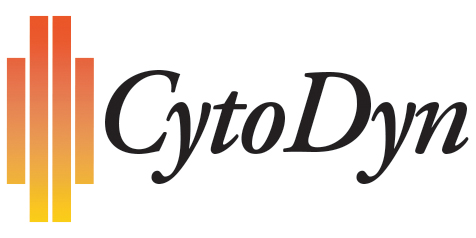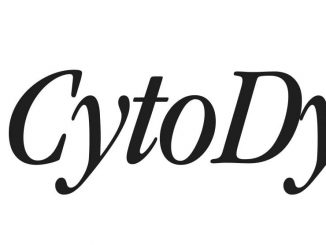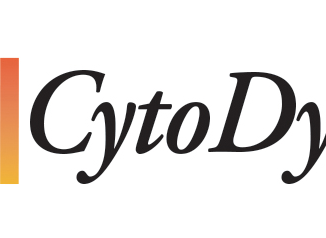
Objective clinical responses in these two patients treated with leronlimab (PRO 140) lead to plans for imminent filing of a Breakthrough Therapy Designation Application while trial enrollment efforts continue at much higher pace
VANCOUVER, Washington, Dec 23, 2019 — CytoDyn Inc. (otc.qb:CYDY), (“CytoDyn” or the “Company”), a late-stage biotechnology company developing leronlimab (PRO 140), a CCR5 antagonist with the potential for multiple therapeutic indications, announced today continued promising clinical responses from its metastatic triple-negative breast (mTNBC) Phase1b/2 trial and its trial investigating leronlimab for the treatment of metastatic breast cancer (MBC).
Further data from the first mTNBC cancer patient continues to show no detectable circulating tumor cells (CTC) or putative metastatic tumor cells in the peripheral blood and additional reductions in CCR5 expression on cancer-associated cells at 11 weeks of treatment with leronlimab. Additional data in an emergency IND protocol involving one MBC patient demonstrated shrinkage of tumor (via MRI) after three weeks of treatment with leronlimab.
“In the first patient, we’re encouraged to see that after 11 weeks these additional data provide further preliminary evidence of efficacy, as demonstrated by sustained undetectable levels of CTCs and a reduction of cancer-associated macrophage like cells (CAMLs),” said Bruce Patterson, M.D., Chief Executive Officer of IncellDx. “Thus far, the data have been consistent with previous studies evaluating leronlimab as a long-term therapy for HIV+ patients, with no serious adverse effects reported in the mTNBC trial.”
CytoDyn’s second patient enrolled is a stage 4 MBC patient. The metastasis progressed to the liver, lung and brain. This patient was enrolled through an emergency IND. The patient was on Herceptin and Perjita for over 1.5 years. Herceptin is known to stop working after about 12 months, while Perjita is effective for approximately 1.5 years. This patient received her first injection of leronlimab on November 25, with one 700 mg dose each week.
Regarding the second patient, Nader Pourhassan, Ph.D., president and chief executive officer of CytoDyn, stated: “It is very exciting to see ongoing results that demonstrate leronlimab’s potential as a therapeutic option to treat patients with mTNBC and MBC with HER2+ condition. This second patient was enrolled in an emergency IND.”
Added Dr. Patterson, “The results from two subsequent scans of the metastatic lesions for this second patient demonstrated shrinkage of the tumors at both timepoints following the first leronlimab injection, reduction in brain edema, and remarkably, disappearance of several metastatic tumors.”
Dr. Pourhassan continued, “Due to these very promising clinical data, we feel that the 98% inhibition of metastasis shown by our animal studies may soon become a reality for many cancer patients throughout the world. We are cautiously optimistic and believe we have enough results in an unmet medical need population to justify filing for Breakthrough Therapy Designation in January 2020.”
About Triple-Negative Breast Cancer
Triple-negative breast cancer (TNBC) is a type of breast cancer characterized by the absence of the three most common types of receptors in the cancer tumor known to fuel most breast cancer growth-estrogen receptors (ER), progesterone receptors (PR) and the hormone epidermal growth factor receptor 2 (HER-2) gene. TNBC cancer occurs in about 10 to 20 percent of diagnosed breast cancers and can be more aggressive and more likely to spread and recur. Since the triple-negative tumor cells lack these receptors, common treatments for breast cancer such as hormone therapy and drugs that target estrogen, progesterone, and HER-2 are ineffective. Currently, there are no targeted therapies approved to treat triple-negative breast cancer.
About Leronlimab (PRO 140)
The U.S. Food and Drug Administration (FDA) has granted a “Fast Track” designation to CytoDyn for two potential indications of leronlimab for deadly diseases. The first as a combination therapy with HAART for HIV-infected patients and the second is for metastatic triple-negative breast cancer (mTNBC). Leronlimab is an investigational humanized IgG4 mAb that blocks CCR5, a cellular receptor that is important in HIV infection, tumor metastases, and other diseases including NASH. Leronlimab has successfully completed nine clinical trials in over 800 people, including meeting its primary endpoints in a pivotal Phase 3 trial (leronlimab in combination with standard anti-retroviral therapies in HIV-infected treatment-experienced patients).
In the setting of HIV/AIDS, leronlimab is a viral-entry inhibitor; it masks CCR5, thus protecting healthy T cells from viral infection by blocking the predominant HIV (R5) subtype from entering those cells. Leronlimab has been the subject of nine clinical trials, each of which demonstrated that leronlimab can significantly reduce or control HIV viral load in humans. The leronlimab antibody appears to be a powerful antiviral agent leading to potentially fewer side effects and less frequent dosing requirements compared with daily drug therapies currently in use.
In the setting of cancer, research has shown that CCR5 plays an important role in tumor invasion and metastasis. Increased CCR5 expression is an indicator of disease status in several cancers. Published studies have shown that blocking CCR5 can reduce tumor metastases in laboratory and animal models of aggressive breast and prostate cancer. Leronlimab reduced human breast cancer metastasis by more than 98 percent in a murine xenograft model. CytoDyn is therefore conducting a Phase 2 human clinical trial in metastatic triple-negative breast cancer and was granted Fast Track designation in May 2019. Additional research is being conducted with leronlimab in the setting of cancer and NASH with plans to conduct additional clinical studies when appropriate.
The CCR5 receptor appears to play a central role in modulating immune cell trafficking to sites of inflammation and may be important in the development of acute graft-versus-host disease (GvHD) and other inflammatory conditions. Clinical studies by others further support the concept that blocking CCR5 using a chemical inhibitor can reduce the clinical impact of acute GvHD without significantly affecting the engraftment of transplanted bone marrow stem cells. CytoDyn is currently conducting a Phase 2 clinical study with leronlimab to further support the concept that the CCR5 receptor on engrafted cells is critical for the development of acute GvHD and that blocking this receptor from recognizing certain immune signaling molecules is a viable approach to mitigating acute GvHD. The FDA has granted “orphan drug” designation to leronlimab for the prevention of graft-versus-host disease (GvHD).
About CytoDyn
CytoDyn is a biotechnology company developing innovative treatments for multiple therapeutic indications based on leronlimab, a novel humanized monoclonal antibody targeting the CCR5 receptor. CCR5 appears to play a key role in the ability of HIV to enter and infect healthy T-cells. The CCR5 receptor also appears to be implicated in tumor metastasis and in immune-mediated illnesses, such as graft-vs.-host disease (GvHD) and NASH. CytoDyn has successfully completed a Phase 3 pivotal trial with leronlimab in combination with standard anti-retroviral therapies in HIV-infected treatment-experienced patients. CytoDyn plans to seek FDA approval for leronlimab in combination therapy and plans to complete the filing of a Biologics License Application (BLA) in 2019 for that indication. CytoDyn is also conducting a Phase 3 investigative trial with leronlimab (PRO 140) as a once-weekly monotherapy for HIV-infected patients and, plans to initiate a registration-directed study of leronlimab monotherapy indication, which if successful, could support a label extension. Clinical results to date from multiple trials have shown that leronlimab (PRO 140) can significantly reduce viral burden in people infected with HIV with no reported drug-related serious adverse events (SAEs). Moreover, results from a Phase 2b clinical trial demonstrated that leronlimab monotherapy can prevent viral escape in HIV-infected patients, with some patients on leronlimab monotherapy remaining virally suppressed for more than four years. CytoDyn is also conducting a Phase 2 trial to evaluate leronlimab for the prevention of GvHD and has received clearance to initiate a clinical trial with leronlimab in metastatic triple-negative breast cancer. More information is at www.cytodyn.com.
Forward-Looking Statements
This press release contains certain forward-looking statements that involve risks, uncertainties and assumptions that are difficult to predict. Words and expressions reflecting optimism, satisfaction or disappointment with current prospects, as well as words such as “believes,” “hopes,” “intends,” “estimates,” “expects,” “projects,” “plans,” “anticipates” and variations thereof, or the use of future tense, identify forward-looking statements, but their absence does not mean that a statement is not forward-looking. The Company’s forward-looking statements are not guarantees of performance, and actual results could vary materially from those contained in or expressed by such statements due to risks and uncertainties including: (i) the sufficiency of the Company’s cash position, (ii) the Company’s ability to raise additional capital to fund its operations, (iii) the Company’s ability to meet its debt obligations, if any, (iv) the Company’s ability to enter into partnership or licensing arrangements with third parties, (v) the Company’s ability to identify patients to enroll in its clinical trials in a timely fashion, (vi) the Company’s ability to achieve approval of a marketable product, (vii) the design, implementation and conduct of the Company’s clinical trials, (viii) the results of the Company’s clinical trials, including the possibility of unfavorable clinical trial results, (ix) the market for, and marketability of, any product that is approved, (x) the existence or development of vaccines, drugs, or other treatments that are viewed by medical professionals or patients as superior to the Company’s products, (xi) regulatory initiatives, compliance with governmental regulations and the regulatory approval process, (xii) general economic and business conditions, (xiii) changes in foreign, political, and social conditions, and (xiv) various other matters, many of which are beyond the Company’s control. The Company urges investors to consider specifically the various risk factors identified in its most recent Form 10-K, and any risk factors or cautionary statements included in any subsequent Form 10-Q or Form 8-K, filed with the Securities and Exchange Commission. Except as required by law, the Company does not undertake any responsibility to update any forward-looking statements to take into account events or circumstances that occur after the date of this press release.


